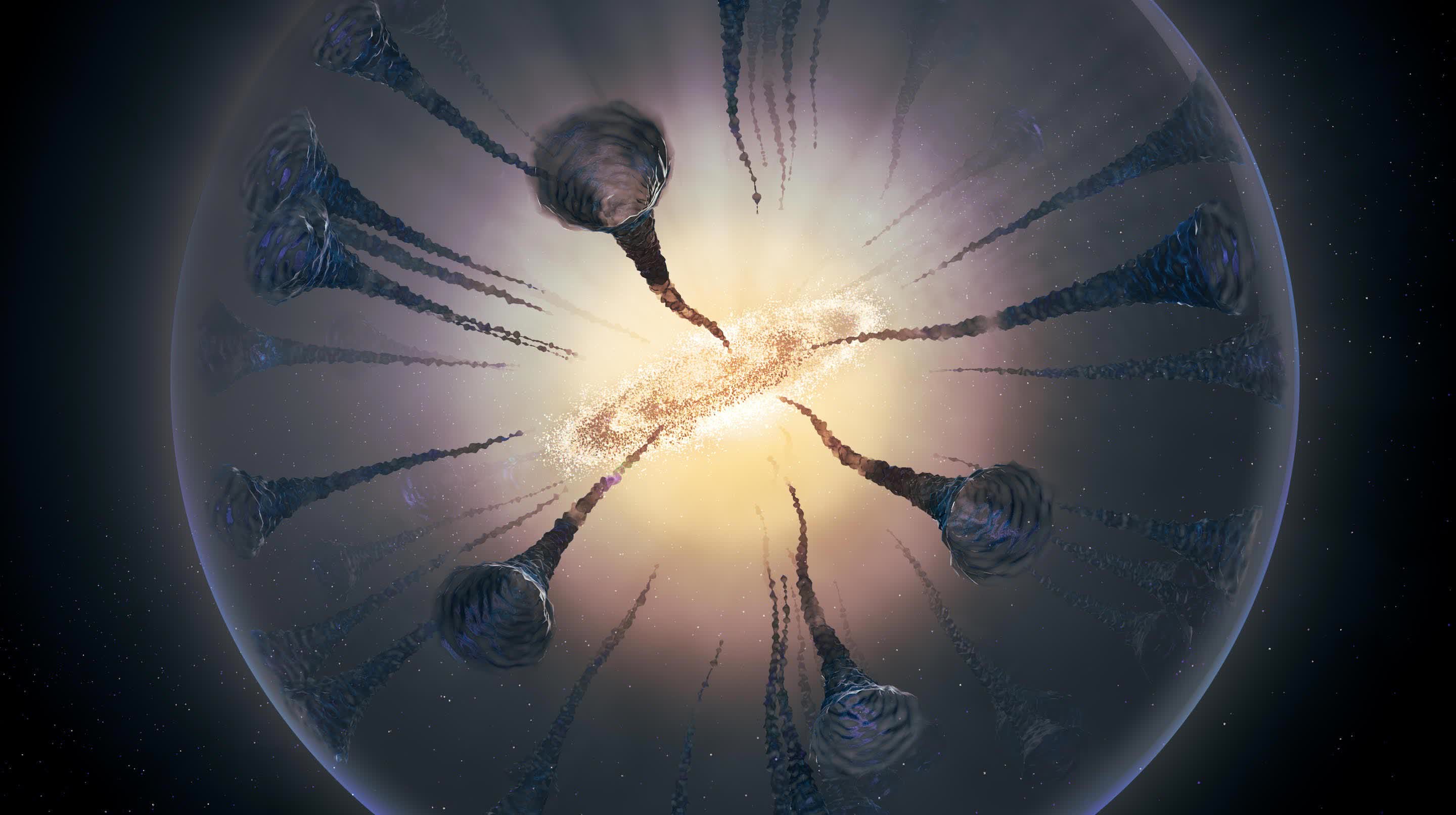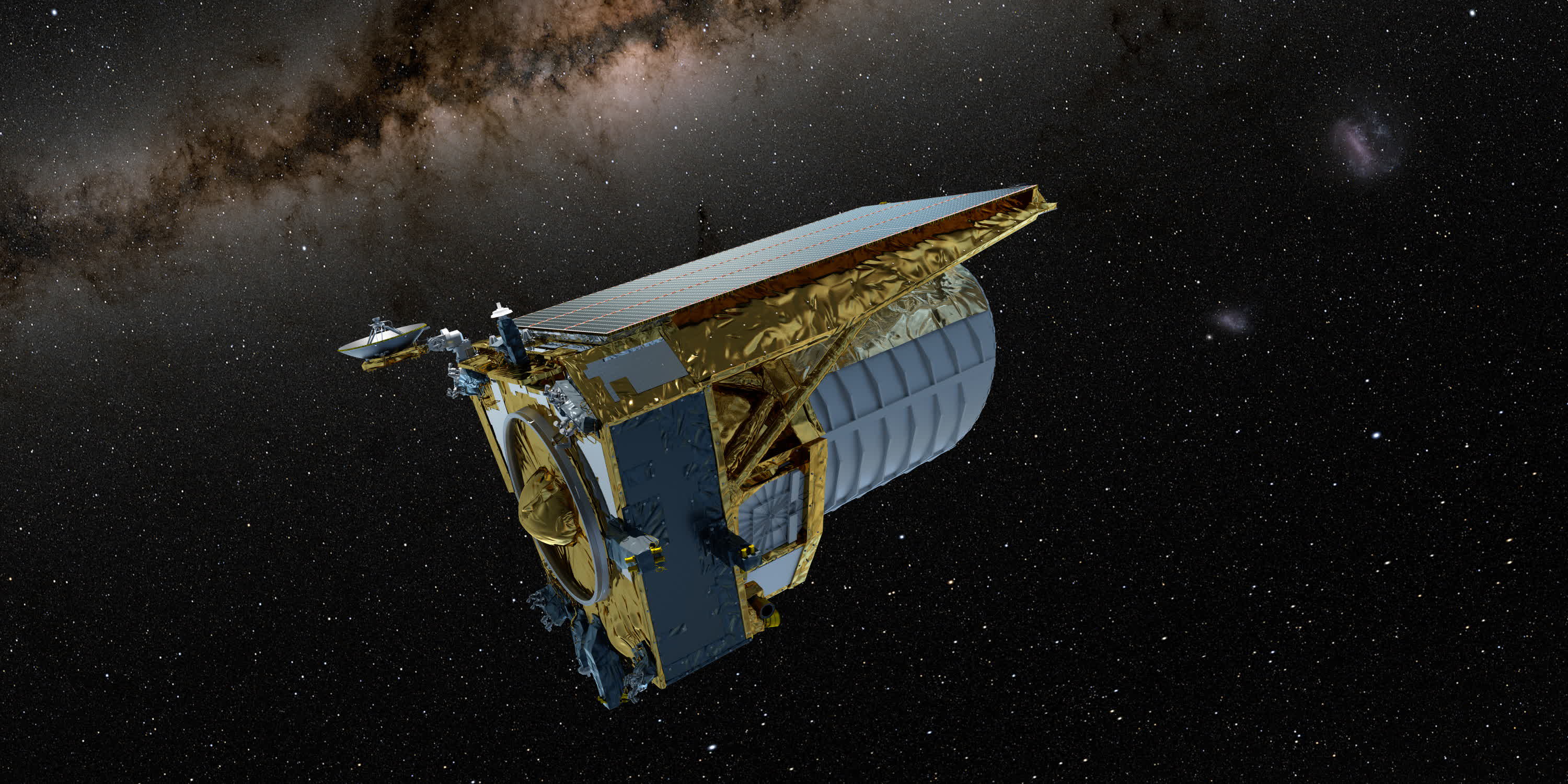Why it matters: A new European mission will soon depart for its deep space destination, providing scientists here on Earth with a very advanced exploration tool. Its mission: to finally solve the mysteries hiding beyond dark matter and dark energy.
Named after the Greek mathematician thought to be the father of geometry, Euclid is an upcoming space exploration mission which will soon depart aboard a Falcon 9 Block 5 reusable rocket. Developed by the European Space Agency (ESA) and the Euclid Consortium with a €1 billion budget, the space telescope will study visible to near-infrared electromagnetic radiation to provide scientist with a better understanding of what dark energy and dark matter actually are.
The Euclid mission was initially planned to launch on a Russian Soyuz rocket, but the invasion of Ukraine forced the ESA to stop its collaboration with the Russian space agency (Roscosmos). The telescope will now depart Earth on a SpaceX's Falcon 9 rocket, launching from Cape Canaveral on July 1, 2023 – weather conditions permitting.
After launch, Euclid will have to travel 1.5 million kilometers to reach its destination, the second Lagrange point. The orbit, which is the same used by the James Webb Space Telescope, will let the space observatory peek into the cosmos with the Sun, Earth, and Moon orbits behind it.

According to Stephen Wilkins, an astronomer at Sussex University, Euclid has the same resolving power as the venerable Hubble Space Telescope with the additional ability to survey a third of the night sky at the same time. Therefore, Euclid will provide an "incredibly detailed" map of the observable universe, Wilkins said.
The two main scientific instruments aboard Euclid are VIS, a camera operating at visible wavelengths, and NISP, which includes detectors sensitive to near-infrared light radiation. Together, the tools will study the universe by exploiting a phenomenon known as gravitational lensing, collecting light which has been distorted and deflected by the gravitational field of the gargantuan cosmic structures they passed through.
Dark matter is the theoretical form of matter which pervades the universe, perhaps making up 85 percent of all matter while avoiding interaction with the electromagnetic field. Dark matter has had a strong influence on the structure and evolution of the universe, scientists think, while dark energy is an unknown form of energy which affects the universe on the largest scales and is seemingly accelerating its expansion.
Andy Taylor, astrophysicist and professor at Edinburgh University, highlighted the importance of the Euclid mission for studying and understanding the universe. We cannot possibly say that we know what the universe actually is if we don't understand the fundamental nature of its elusive "dark components" (ie dark matter and dark energy), Taylor said.
https://www.techspot.com/news/99135-euclid-space-telescope-shed-light-what-dark-universe.html
